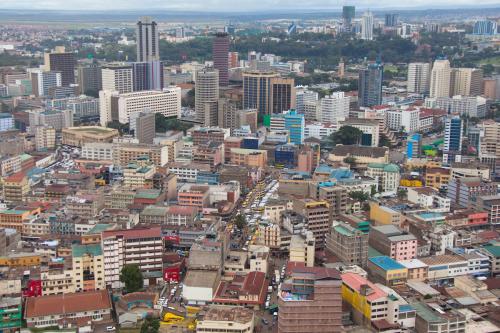From a distance, the finger-pointing and the hand-wringing over the seeming demise of plans to build rail to Dulles Airport make it appear that the project collapsed under its own weight.
The Dulles dust-up is not a unique disease, but rather a symptom of a much larger national transportation illness. As hard as it may be to think of a $5 billion mega-transportation project as a “microcosm” of anything, right now that is exactly how one should consider the Dulles rail controversy.
The disagreements about the planned 23-mile Metrorail line through Tysons Corner in Virginia, continuing to Dulles International Airport — stalled now due to ideological differences over the appropriate federal role in transportation — are a subset of a larger battle taking place.
Around the country, metropolitan-based civic and business leaders are constructing 21st-century visions for transit, engaging local governments in true regional decision making and leveraging private funding for infrastructure projects.
Formerly auto-centric metropolitan areas such as Los Angeles and Dallas have made transformative use of new investments in key transit corridors. Metropolitan Denver is embarking on arguably the most extensive transit expansion this nation has ever seen.
These regions have looked to transit to shape future growth, to provide more choices and to at least somewhat mitigate climate changes.
Unfortunately, most of this innovation is happening in spite of — rather than in conjunction with — the federal government.
The sad fact is that our national government takes an impeding and outmoded approach to transportation innovation, establishing starkly different rules that favor highways over transit projects.
This unlevel playing field has profound effects on metropolitan America and, by extension, on the economic competitiveness of the nation.
The federal program that funds new transit projects is totally discretionary and highly regulated by the U.S. Department of Transportation. Projects must prevail through an onerous review before final recommendation is made. Even then, each project is subject to the annual congressional appropriations process.
Clearly, some kind of competitive process is warranted. However, the current bureaucratic rigmarole is so torturous, it is no wonder that some metropolitan areas are forgoing the federal process completely and funding new transit segments on their own.
In addition, this administration’s inexplicably hostile approach to nonhighway projects has compounded the problem, resulting in shortsighted thinking that ignores the realities and challenges of the modern metropolis.
But no such federal gantlet governs highway projects. Simply put, the states do not have to seek federal permission to build them.
More inequity exists in terms of what the federal government is willing to contribute to investments.
Federal law created 50 years ago establishes 80 percent to 90 percent of the funding for highway projects. For transit investments, the contribution is much lower — just 47 percent, according to the Office of Management and Budget. The Dulles share is only 20 percent.
Finally, developers of federal transit projects must demonstrate a long-term ability to operate and maintain the facility.
Makes sense, right? It is one thing to create a project but, as the collapse of the bridge in Minneapolis underscored, maintaining it is entirely another. Yet recipients of highway dollars amazingly are not responsible for this.
All of this brings us back to the Dulles rail project. Understandably, many feel that the Department of Transportation’s lack of clear guidance and direction, astonishing miscommunication, unprecedented heavy-handedness and traditional, road-centric thinking may be too much to overcome.
Yet the hope is that cooler heads prevail. The focus now must be on making Dulles rail a negotiated success rather than a standoff failure, because too many benefits are on the line.
The project promises to transform a congested suburban corridor, contribute toward energy independence and take advantage of a unique private finance and development partnership to accommodate decades’ worth of metropolitan growth. It also will anchor Washington’s status as an international capital.
Right now, though, our outmoded transportation infrastructure, both here and around the country, is ill-served by an outmoded federal partner.
Robert Puentes is a fellow at the Brookings Institution’s Metropolitan Policy Program.


Commentary
Op-edKeeping Controversial Dulles Project on Track
February 13, 2008